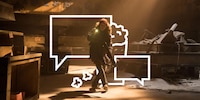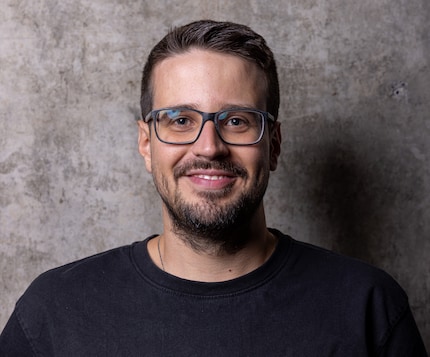
Review
"The Last of Us" is back - and immediately hits the pit of the stomach again
by Luca Fontana
After the shock of the last episode, you might have thought that "The Last of Us" would give us a breather. Well, yes - it does give us one. But no respite.
Third part, different pace: «The Last of Us» does not pull the world further apart in «The Path» - it shows the emptiness that remains. What begins as a quiet aftershock grows into a journey of guilt, anger and hopelessness. No battles, no explosions - just characters fighting with themselves while everything outside pretends that nothing has happened.
In the Spoiler Factory, Michelle, Domi and I talk openly, critically and emotionally about the current episode as always - with spoilers up to this point, but without a preview of what's to come.
Here's a little sneak peek:
If you haven't seen our first episode, you can catch up here:
If you haven't seen the third episode yet and still want to know what it was like, here's a short summary of our impressions - without spoilers.
«The Last of Us» doesn't want us to rush forwards in Episode 3 - «The Path». Not yet. Rather, we should endure. What we are left with at the end of the shocking second episode. Pain. Emptiness. The realisation that the world keeps turning, regardless of whether we are ready for it or not.
The result is a quiet episode that doesn't need explosions or heroic poses to resonate. It's all about broken people trying to get through the day. Michelle felt it particularly strongly: how Ellie tries to keep up her façade, only to reveal in the quiet moments how big the abyss beneath her feet really is. She's pretending to herself because she can't face the truth yet.
Domi was impressed by how the series builds up new threats on the horizon - and yet never loses sight of what it's really about: Ellie. Not about the world, not about the infected, not about cults or wolves. It's about a young woman who loses herself and has to find herself again.
And while the series shows how fragile and real its characters are, outside, in the real world, the old debate rages: Wokeness. Agendas. All the buzzwords that always come up when stories become too uncomfortable. As if humanity were an ideology. Or Ellie's sexual orientation a provocation.
But «The Last of Us» is not about ideologies and agendas. The game that adapted the series didn't do that back in 2014. «The Last of Us» is about people and paths where there are no simple truths. Only guilt, loss and the hope that somewhere a small part of what we were before can still be saved.
You can subscribe to us via any podcast app such as Spotify, Apple Podcast, Youtube Music or Podigee. Under the following link you will find our podcast equipment.
Luca is living proof that our parents were lying: There are no square eyes from watching too much TV. Rumour has it that he was already watching «Star Wars» films and reading Marvel comics in his mother's womb. Today, after many years of field research, he knows his way around the Disney universe better than Al Capone in 1930s Chicago. He uses the same password for his 14 streaming subscriptions because otherwise he would forget them. The only people who are allowed to disturb him in his «work» are his two cats.

While others break into a sweat just drawing a stick figure, Michelle uses every tablet test as a template for digital artwork. Somewhat more tangible are those from the 3D printer, which regularly model her smartphone reviews. The gadget enthusiasm that almost every new member of the editorial team succumbs to can be seen on their desk, which is flanked by a home-made RGB keyboard and matching RGB mouse. She only feels even more emotion, which even gets under her skin in the form of tattoos, for Pokémon.

If anyone games more than Phil, it would be Domi. If his dog didn't regularly drag him out into the sunlight, he would have long since collected all the platinum trophies on the Playstation. His heart also burns for another well-known Japanese company, Nintendo. This is proven by the various retro consoles that adorn his office, as well as his encyclopaedic knowledge of all Pokémon - even those that have yet to be invented.

I write about technology as if it were cinema, and about films as if they were real life. Between bits and blockbusters, I’m after stories that move people, not just generate clicks. And yes – sometimes I listen to film scores louder than I probably should.
Which films, shows, books, games or board games are genuinely great? Recommendations from our personal experience.
Show all